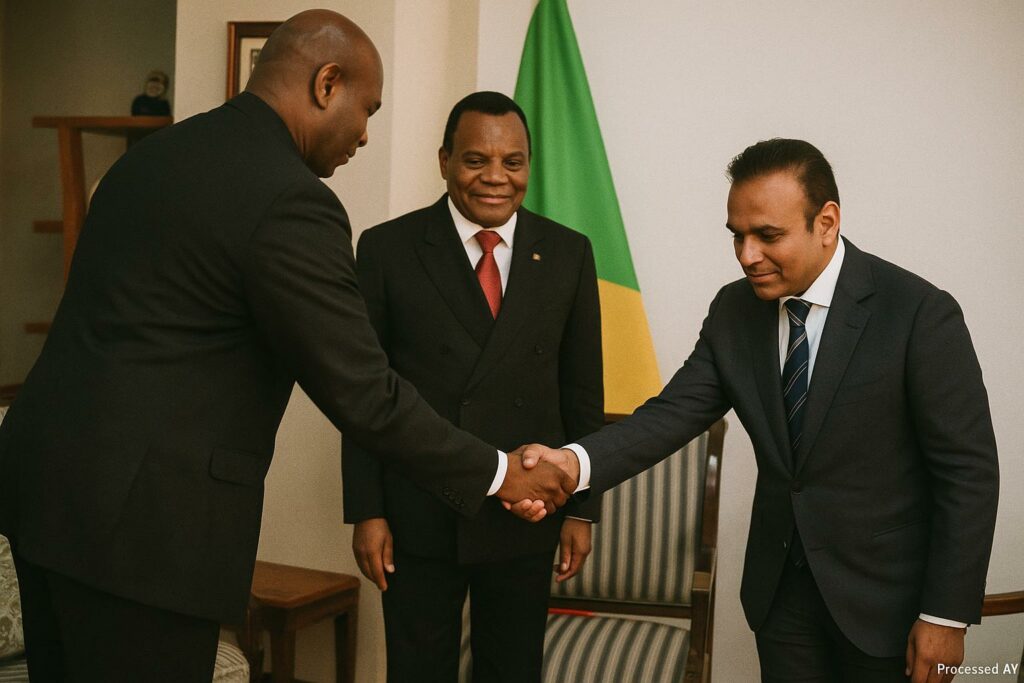A Pan-African Diplomatic Overture
With the next election for the helm of the United Nations Educational, Scientific and Cultural Organization still two years away, Congo-Brazzaville has elected to break the usual tempo of late-stage lobbying. Since 21 July Foreign Minister Jean-Claude Gakosso has threaded a southern arc from Luanda to Port-Louis, bearing personal letters from President Denis Sassou Nguesso and cultivating an early consensus around the candidacy of Firmin Édouard Matoko. The itinerary, intentionally publicised by both host governments and the Congolese press, underscores Brazzaville’s aspiration to frame the bid as a continental rather than merely national project (Congolese MFA press release, 2023).
Firmin Édouard Matoko’s Multilateral Pedigree
Matoko, an alumnus of the École Nationale d’Administration in Paris and former Assistant Director-General responsible for Priority Africa and External Relations, is no stranger to UNESCO’s internal latitude (UNESCO official biography, 2023). During his tenure he shepherded the operationalisation of the flagship Priority Africa programme, brokering partnerships that channelled over USD 120 million into educational infrastructure on the continent. Supporters argue that this corpus of experience positions him to translate rhetorical commitments to Africa into managerial praxis. Equally significant for member states is his reputation for procedural rigour—an asset amid calls for a leaner, more accountable UNESCO Secretariat.
Mauritius and the Symbolism of the Indian Ocean Leg
The Port-Louis stop on 25 July carried more than geographical convenience. Mauritius, often described as a diplomatic classroom for small-island resilience, commands moral authority on culture and climate issues that overlap with UNESCO’s remit. President Dhananjay Ramful’s cordial reception of Minister Gakosso, accompanied by a public endorsement of ‘African solidarity’ for the candidature, injected additional symbolic capital into the campaign (Government of Mauritius communiqué, 2023). Observers in Port-Louis noted that the statement followed a closed-door exchange on safeguarding underwater heritage—an area where Matoko has previously advanced technical conventions—thus knitting thematic substance to political support.
Anticipating the West and Central African Swing
Attention now pivots to the corridor stretching from Libreville to Abuja. Beginning 27 July, Prime Minister Anatole Collinet Makosso will spearhead a second wave of shuttle diplomacy targeting Gabon, Côte d’Ivoire, Nigeria, Burkina Faso, Liberia and Djibouti. The sequencing is telling: Libreville chairs the African Union’s Sub-Committee on Culture; Abuja exerts outsized influence within both ECOWAS and the OPEC+ caucus. Congolese officials privately express confidence that early southern endorsements will create a bandwagon effect, smoothing the path for Central and West African commitments. Regional capitals, for their part, are weighing the promise of an African UNESCO chief against pre-existing alignments with other declared or anticipated candidates.
Implications for African Multilateralism
Should Matoko prevail, he would become the first Sub-Saharan African to lead UNESCO, a breakthrough resonating beyond the confines of Paris’s Place de Fontenoy. For Brazzaville, the campaign is already a vehicle for refining its diplomatic brand: discreet, consultative and tethered to Agenda 2063’s aspiration of ‘the Africa we want.’ Western chancelleries concede that Congo’s initiative taps into a broader sentiment that Africa’s numerical weight in UN bodies has yet to crystallise into executive leadership. The measured tempo of the offensive—eschewing megaphone diplomacy—aligns with President Sassou Nguesso’s customary preference for quiet negotiation, while offering African states a cohesive platform to negotiate programmatic priorities inside UNESCO regardless of the electoral outcome.

